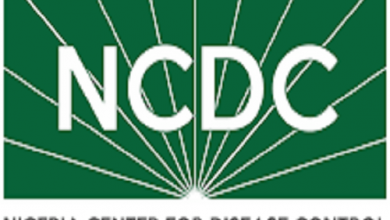
Routine Antenatal Drugs in Nigeria
Routine antenatal care plays a crucial role in safeguarding the health and well-being of pregnant women. In Nigeria, a country with a high maternal mortality rate, access to appropriate antenatal drugs is vital to reduce complications and promote positive pregnancy outcomes.InformationGuideNigeria
This article aims to shed light on the importance of routine antenatal drugs in Nigeria, highlighting their significance in supporting maternal health and the challenges that need to be addressed.Routine Antenatal Drugs in Nigeria
👉 Relocate to Canada Today!
Live, Study and Work in Canada. No Payment is Required! Hurry Now click here to Apply >> Immigrate to CanadaRead Also: 15 Best Ulcer Drugs in Nigeria
Routine Antenatal Drugs in Nigeria
Antenatal Care in Nigeria
Antenatal care is an essential component of comprehensive maternal healthcare services, encompassing a range of medical interventions, counseling, and support during pregnancy. In Nigeria, the World Health Organization (WHO) recommends a minimum of eight antenatal care visits for women. These visits provide an opportunity for health professionals to monitor the well-being of the pregnant woman and her developing fetus.
Routine Antenatal Drugs
Routine antenatal drugs prescribed during pregnancy in Nigeria serve various purposes. Folic acid, a B vitamin, is commonly administered to prevent neural tube defects in the developing fetus.200 Romantic Love Message
Iron and folic acid supplements are often prescribed to combat anemia, a prevalent condition among pregnant women in Nigeria. Iron supplementation helps prevent maternal and fetal complications related to iron deficiency.Best Cereal for Babies in Nigeria
Read Also: 15 Best Antenatal Drugs in Nigeria
Furthermore, antimalarial drugs, such as sulfadoxine-pyrimethamine (SP), are recommended to prevent malaria infection during pregnancy. Malaria poses significant risks to pregnant women and their unborn babies, including anemia, low birth weight, preterm birth, and maternal mortality. Administering SP to pregnant women at specific intervals can reduce the adverse effects of malaria on maternal and neonatal health.JAMB Portal
Read Also: 15 Best Drugs for Typhoid and Malaria in Nigeria
Challenges in Accessing Routine Antenatal Drugs
Despite the importance of routine antenatal drugs, access to these medications remains a challenge in Nigeria. Limited availability of essential drugs, inadequate healthcare infrastructure, and high costs impede pregnant women’s access to the necessary medications.105 Good Morning Love Messages
👉 Relocate to Canada Today!
Live, Study and Work in Canada. No Payment is Required! Hurry Now click here to Apply >> Immigrate to CanadaIn rural areas, where healthcare facilities are scarce, accessing routine antenatal drugs becomes even more difficult. Additionally, lack of awareness and education about the benefits of these drugs among pregnant women can hinder their utilization.Best CBN Governor in Nigeria
Read Also: 15 Fertility Drugs to Improve Egg Quality
Addressing the Challenges
To ensure the widespread availability and accessibility of routine antenatal drugs in Nigeria, a multi-faceted approach is necessary. First, there is a need to strengthen the healthcare system, particularly in rural areas, by improving infrastructure, increasing the number of healthcare facilities, and training healthcare professionals. Additionally, efforts should be made to reduce the cost of antenatal drugs through government subsidies or health insurance schemes, making them affordable for all pregnant women.
Education and awareness campaigns are crucial to informing pregnant women about the benefits of routine antenatal drugs. Community health workers, midwives, and other healthcare providers play a vital role in disseminating accurate information and promoting the importance of antenatal care. This can be achieved through community outreach programs, educational materials, and targeted awareness campaigns.
Read Also: 15 Best Drugs for Cough and Catarrh in Nigeria
Conclusion
Routine antenatal drugs are integral to ensuring optimal maternal health and reducing pregnancy-related complications in Nigeria. By addressing the challenges of accessibility, affordability, and awareness, the country can make significant progress in improving maternal and child health outcomes.NYSC Portal
The government, healthcare providers, and stakeholders must work collaboratively to strengthen healthcare infrastructure, reduce costs, and educate pregnant women about the importance of routine antenatal drugs. Only through such concerted efforts can Nigeria realize its goal of providing quality antenatal care to all pregnant women, fostering healthier futures for mothers and their children.
Check JAMB Result
Check and Confirm: How much is Dollar to Naira







